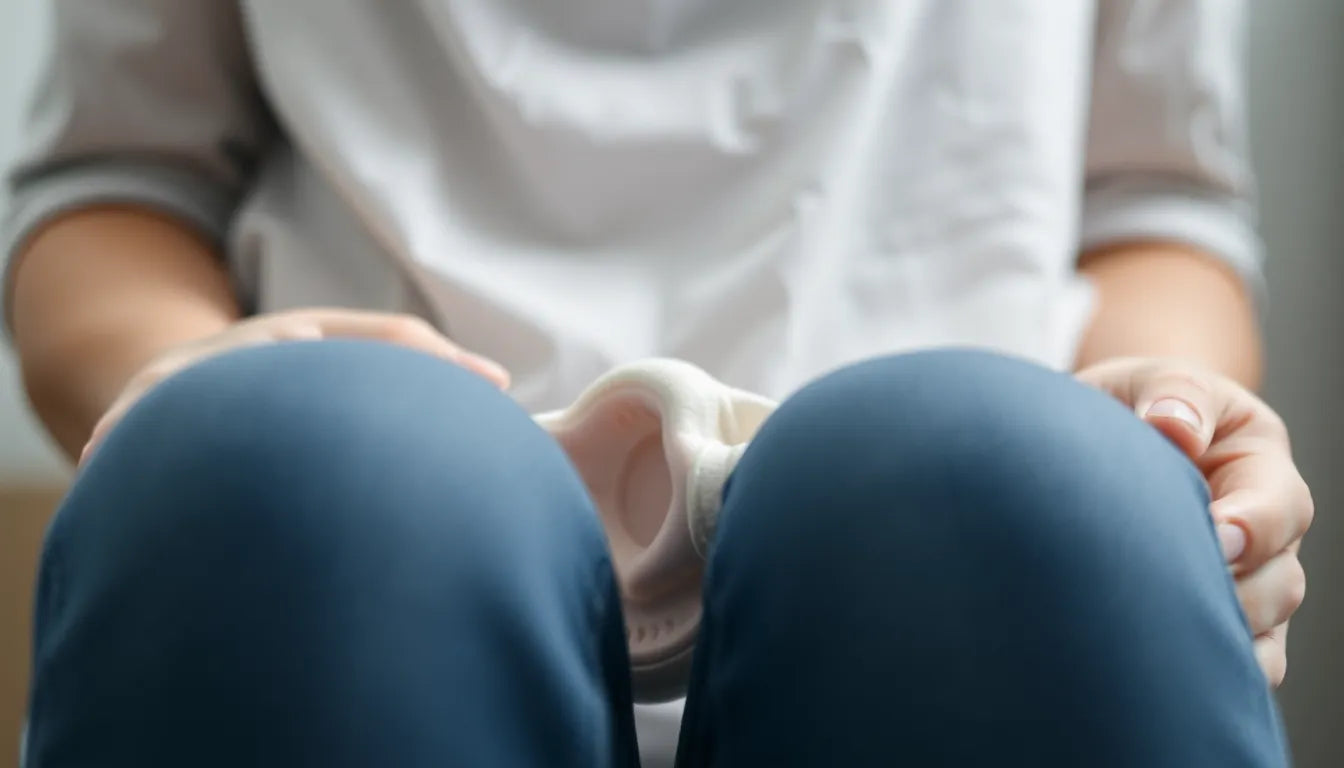Waking up with lower back pain is a common issue that many people face, often disrupting the start of their day. This discomfort can manifest as a dull ache, stiffness, or even sharp pain, making it difficult to get out of bed and start the morning routine. Such pain not only affects physical well-being but can also have a significant impact on one's mood and productivity throughout the day.
understanding the prevalence of morning lower back pain
Lower back pain is a widespread problem, affecting a large portion of the population at some point in their lives. According to various studies, a significant number of individuals experience lower back pain upon waking, which can lead to decreased productivity and a lower quality of life. The reasons for waking up with pain in the lower back can vary widely, from simple muscle strains and poor sleeping positions to more complex issues like disc problems or nerve compression.
It's essential to understand that morning lower back pain is not just a minor inconvenience. If left unaddressed, it can lead to chronic issues that require more intensive treatment. Therefore, understanding the underlying causes is crucial for managing and alleviating this pain effectively.
the purpose of exploring morning back pain solutions
This blog post aims to delve into the causes, symptoms, and potential solutions for morning lower back pain. By identifying the root causes, individuals can implement both immediate relief strategies and long-term preventive measures to manage their discomfort. From understanding the importance of ergonomic sleeping positions to recognizing when professional intervention is necessary, this post will provide a comprehensive guide to tackling morning lower back pain.
Encouraging readers to take proactive steps in addressing their pain can lead to improved health outcomes and a more enjoyable start to the day. By exploring a range of solutions, from simple adjustments in daily habits to seeking professional help when needed, individuals can regain control over their morning routines and enhance their overall well-being.
symptoms of morning lower back pain and their implications
Waking up with lower back pain can manifest in various ways, each potentially pointing to different underlying issues. One common symptom is morning stiffness and a heavy sensation in the lower back, which can be particularly pronounced after periods of inactivity. This stiffness might indicate vascular issues or disc-related conditions, where the lack of movement during sleep leads to a temporary reduction in blood flow or compression of spinal discs.
Another symptom to consider is sharp pain during activity, which often suggests muscular causes. This type of pain can arise from overuse or strain of the muscles supporting the spine. When these muscles are overworked or not given adequate time to recover, they can become tight and painful, especially after a night's rest.
Additionally, if the pain radiates to the legs, it often points to nerve involvement, such as a herniated disc. This condition occurs when the soft inner gel of a disc pushes out through a tear in the tougher exterior, potentially pressing on nearby nerves. Such nerve compression can lead to pain, tingling, or numbness extending down the legs.
common causes of morning lower back pain
Understanding the causes of waking up with lower back pain is crucial for effective management. Muscle strains and overuse are frequent culprits, especially for individuals who engage in repetitive or strenuous activities. These activities can lead to micro-tears in the muscle fibers, resulting in inflammation and soreness.

Lumbar support belt
Provides stabilization and relief for lower back pain; adjustable for personalized support.
Inflammation and overloading of muscles, tendons, or ligaments are also significant contributors. When these tissues are subjected to excessive stress, they can become inflamed, leading to discomfort and pain. This is particularly common in individuals who maintain poor posture during the day or sleep in non-ergonomic positions at night.
In more severe cases, conditions such as herniated discs, spinal stenosis, or sciatica may be responsible. These conditions often require medical evaluation and intervention, as they can lead to chronic pain and other complications if left untreated.
treatment and self-care strategies for morning lower back pain
For those experiencing morning lower back pain, several immediate relief techniques can provide comfort. Rest is often the first step, allowing the affected area to recover from strain or overuse. Applying heat or ice can also help reduce inflammation and alleviate pain. Over-the-counter pain relievers, such as ibuprofen or acetaminophen, may offer additional relief.
Long-term management of lower back pain often involves physiotherapy, osteopathy, or acupuncture. These therapies can help address underlying issues by improving flexibility, strengthening muscles, and promoting overall spinal health. Physiotherapists, in particular, can provide tailored exercises and stretches to target specific areas of discomfort.
Incorporating self-care practices into daily routines is essential for preventing future episodes of pain. Gentle stretching exercises can help maintain flexibility and reduce stiffness. Maintaining ergonomic postures, both during sleep and throughout the day, can prevent undue stress on the lower back. Additionally, varying positions and avoiding prolonged periods of inactivity can help keep the spine healthy and pain-free.

Women's Posture Shirt™ - Black
Posture-correcting shirt using NeuroBand™ tech to relieve pain and improve back alignment.
By understanding the symptoms, causes, and treatment options for morning lower back pain, individuals can take proactive steps to manage their discomfort. Whether through immediate relief techniques or long-term lifestyle adjustments, addressing this common issue can lead to improved well-being and a more positive start to each day.
preventive measures and lifestyle adjustments for back pain relief
Waking up with lower back pain, or "vågner med ondt i lænden," can often be mitigated through preventive measures and lifestyle adjustments. One of the most effective strategies is to make ergonomic adjustments to your sleeping environment. Choosing a supportive mattress that aligns with your spine's natural curve can significantly reduce stress on your back. Additionally, selecting the right pillow that supports your neck and maintains spinal alignment is crucial. It's also beneficial to explore different sleeping positions; for instance, sleeping on your side with a pillow between your knees can alleviate pressure on your lower back.
Incorporating healthy daily habits is equally important in preventing morning lower back pain. Regular exercise, such as low-impact activities like walking, swimming, or yoga, can strengthen the muscles that support the spine and improve flexibility. Maintaining a healthy weight is also essential, as excess weight can put additional strain on the back. Practicing good posture throughout the day, whether sitting, standing, or lifting objects, can prevent unnecessary stress on the spine.
when to seek professional help for back pain
While many cases of morning lower back pain can be managed with self-care and lifestyle changes, there are instances where professional evaluation is necessary. It is advisable to seek medical attention if your pain persists for more than a few weeks, worsens over time, or is accompanied by neurological symptoms such as numbness, tingling, or weakness in the legs. These symptoms may indicate more serious conditions like a herniated disc or spinal stenosis, which require a thorough medical assessment and possibly advanced treatment.
Consulting with healthcare professionals such as physiotherapists, chiropractors, or osteopaths can provide valuable insights into the underlying causes of your pain. They can offer tailored treatment plans that include exercises, manual therapies, and advice on ergonomic adjustments to improve your condition.
frequently asked questions
why do I wake up with lower back pain?
Waking up with lower back pain can be due to several factors including poor sleeping posture, an unsupportive mattress, or underlying health issues like muscle strain or disc problems. During sleep, the body remains inactive, which can exacerbate stiffness and discomfort in the lower back.
what are some quick fixes for morning lower back pain?
Immediate relief strategies for morning lower back pain include gentle stretching exercises, applying heat to relax tense muscles, and using ergonomic pillows to support your neck and spine. Ensuring you have a supportive mattress can also help alleviate discomfort.
how can I prevent waking up with back pain?
To prevent waking up with back pain, focus on improving your sleep posture by using a supportive mattress and pillow. Consider sleeping on your side with a pillow between your knees. Regular exercise, maintaining a healthy weight, and practicing good posture during the day can also help prevent morning back pain.
when should I see a doctor for my back pain?
If your back pain persists for more than a few weeks, worsens, or is accompanied by symptoms like numbness, tingling, or weakness in the legs, it's important to seek medical advice. These symptoms may indicate more serious conditions that require professional evaluation and treatment.
Kilder
- Apopro. ”Ondt i lænden.” Apopro.
- Aarhus Osteopati. ”Lændesmerter.” Aarhus Osteopati.
- Møbler.dk. ”Ondt i ryg, lænd eller skulder efter søvn.” Møbler.dk.
- Anew Sleep. ”Ondt i ryggen.” Anew Sleep.
- Sundhed.dk. ”Lændesmerter (lave rygsmerter).” Sundhed.dk.
- Min Osteopat. ”Hold i ryggen.” Min Osteopat.
- Fysio. ”Smerter i ryggen - her er hvad du kan gøre.” Fysio.dk.
- Næstved Kiropraktor. ”Lænd.” Næstved Kiropraktor.


















